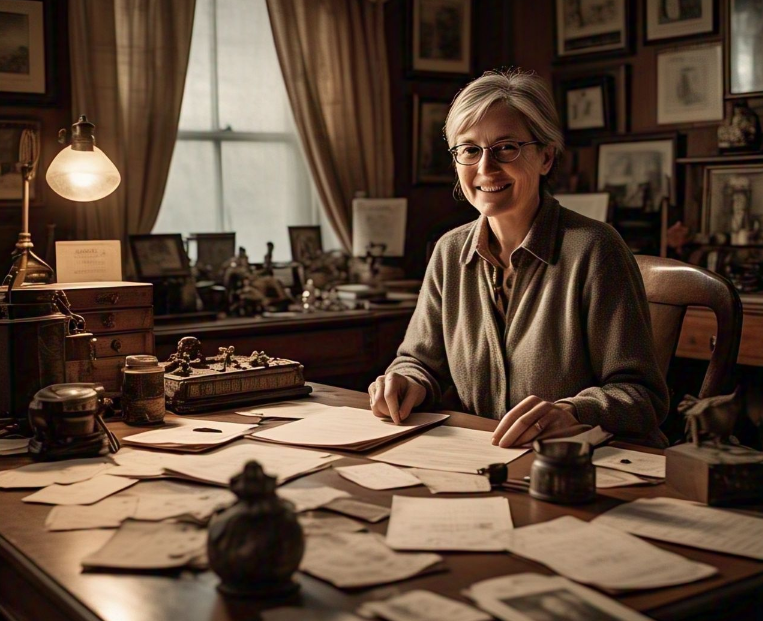Family history is more than just dates and names; it’s about the stories that have been passed down through generations. Exploring your family history can reveal incredible insights into who you are and where you come from. It’s like opening a treasure chest of memories that paint a picture of your ancestors’ lives and the experiences that shaped their world.
By understanding your family history, you not only learn about the past but also gain a sense of connection to the present. Whether it’s discovering the challenges your ancestors faced or finding out about long-lost relatives, exploring your family history can be an exciting adventure that brings the past to life.
What Is Family History and Why Does It Matter
Family history is a journey into the past to learn more about your ancestors. It’s not just about knowing your grandparents’ names. It’s about understanding the lives they lived, the challenges they faced, and the decisions that shaped their world. When you research family history, you are building a bridge between past and present.
Family history matters because it helps you connect with your roots. By knowing where you come from, you can better understand your own identity. You might discover something special about your ancestors that can inspire or help you today. It’s like putting together the pieces of a puzzle that reveal who you are and where you belong.
How to Start Your Family History Journey
Starting your family history research can feel exciting but also a little overwhelming. The first step is to gather information from family members. Ask your parents, grandparents, or any older relatives for stories and records. They might have old photos, letters, or other treasures that can be helpful.
Once you have this information, you can use tools like online ancestry websites. These websites help you trace family members, dates, and places. You can also visit libraries or historical societies that might hold records, such as birth certificates or marriage licenses.
Tips for Beginning Your Family History Search:
- Start with what you know: Gather details from your own family members first.
- Use online tools: Websites like Ancestry.com can guide your research.
- Visit local archives: Libraries or historical societies often have helpful records.
The Power of Family History: Building Stronger Connections
Exploring your family history has the power to strengthen bonds with your family. When you learn about your ancestors’ struggles and successes, it brings you closer to the people who came before you. It creates a sense of pride and shared identity, knowing that you are part of a long history.
Additionally, understanding your family history can help you relate better to your relatives. For example, learning about your great-grandfather’s work might explain why your grandfather values hard work. The more you know, the better you can connect with your family members, deepening relationships that might not always be easy to understand.
Tools to Help You Trace Your Family’s Past
Today, there are many tools available to help you trace your family’s past. One popular tool is online ancestry services. Websites like MyHeritage and Ancestry.com offer records and family trees that can guide you. These sites have information about births, marriages, and deaths, which are key to building your family history.
You can also use DNA testing services like 23andMe to learn about your ethnic background. These tests can reveal surprising facts about your family’s heritage. Local libraries and archives are also great places to find historical documents that may not be available online.
Recommended Tools for Tracing Family History:
- Ancestry.com: Offers detailed family trees and historical records.
- MyHeritage: Similar to Ancestry.com, with global records.
- 23andMe: DNA testing for discovering your family’s ethnic roots.
Family History and Its Role in Shaping Your Identity
Your family’s past plays an important role in shaping who you are today. From the traditions passed down to the values taught by your ancestors, everything influences your life. Understanding your family’s story helps you understand why certain customs or traditions are important.
By learning about their history, you may discover patterns that explain certain behaviors. For example, you might learn that resilience runs through your family’s veins, or you might discover how your ancestors’ education shaped the career paths that run in your family.
Conclusion
Exploring your family history is like taking a journey through time. It helps you understand where you come from and gives you a deeper connection to your roots. By learning about your ancestors’ lives, you can discover valuable lessons that can guide you in your own life. Whether you’re learning about their struggles or their successes, each piece of your family’s story is important.
In the end, family history is not just about looking back; it’s about understanding how the past shapes the present and future. By sharing these stories, you can keep your family’s legacy alive for generations to come. So, start your family history journey today and uncover the hidden stories that make you who you are!


